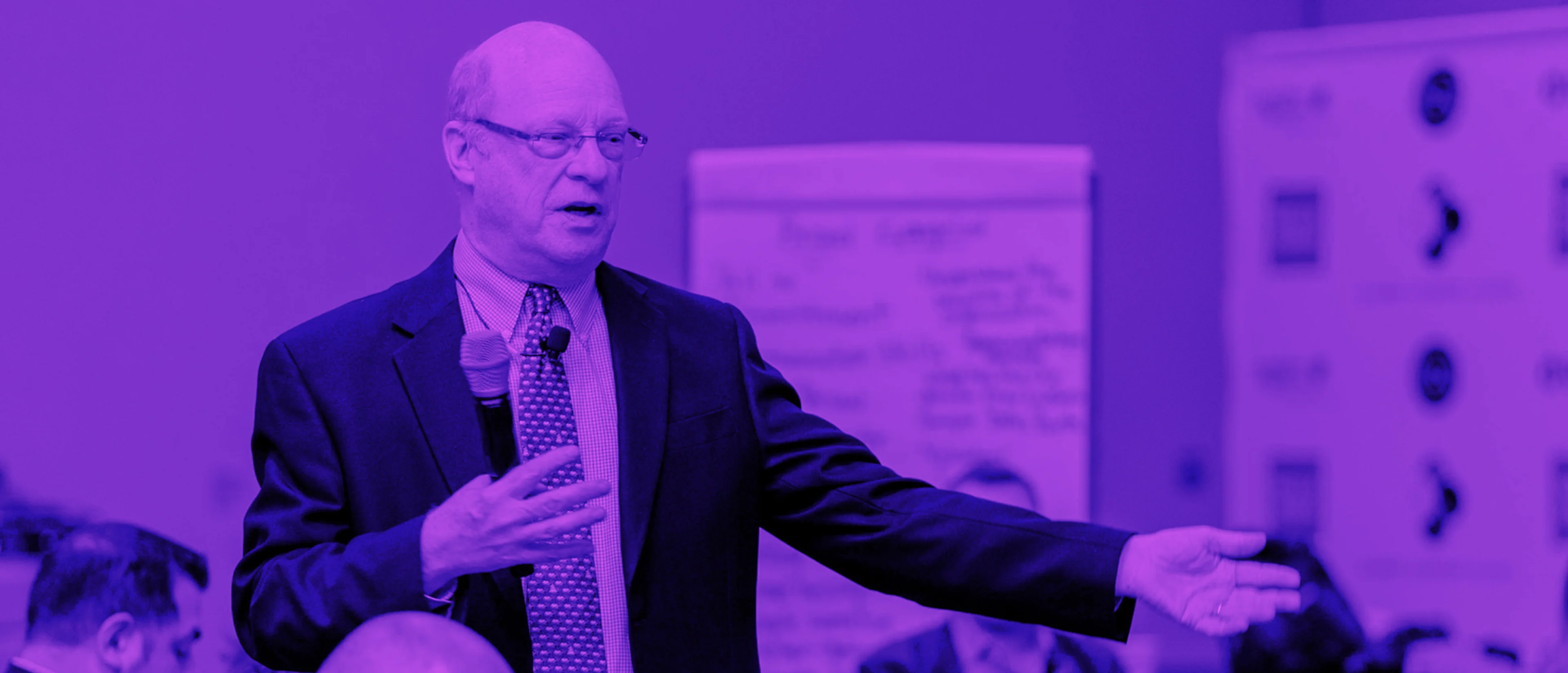Most organizations still talk about values as if they’re slogans on a wall, broad statements that sound inspiring but don’t always translate into day-to-day behavior. But in reality, a strong culture doesn’t live in posters or presentations; it lives in what people actually do.
Sustainable growth doesn’t come from declaring values; it comes from defining the behaviors that support them, making expectations clear, and holding everyone accountable in living them out. Hilary Ware, a recent guest on Rethink Change, shared that companies that thrive are those that maintain simple, focused, and consistent values, allowing them to withstand chaos and change.
Too often, leaders try to overhaul everything at once, layering on big-company processes that don’t fit their current reality. The result is confusion, burnout, and a culture that feels disconnected from the people inside it. But when organizations slow down, invest time upfront, and meet people where they are, they unlock alignment that actually sticks.
True cultural transformation requires clarity, communication, and empathy. It means being clear about what the company will and won’t do, communicating more than ever before, and appreciating what disruption feels like for employees.
Companies that embrace this approach stop chasing quick fixes and start building cultures that endure, which is why leaders like Hilary are reframing simplicity, purpose, and accountability as the cornerstones of lasting change.
Listen to the full conversation on Spotify -
Meet Hilary Ware, Executive Advisor and Coach
Hilary Ware is a leader whose passion for enterprise transformation has been sought after across industry sectors, undertaking large-scale change. She has earned respect for challenging norms through innovative strategic initiatives, building trusted relationships, executing with attention to detail, and accelerating business outcomes and global workforce engagement for over four decades. Her deep business acumen and functional expertise enable a unique and forward-looking view of broader business implications.
Hilary engages executive teams to imagine what’s possible, ensuring a differentiated value proposition that maximizes shareholder equity and organizational success and adds a refreshing dynamic to boardroom deliberations. She is a gifted advisor to board and C-suite leadership teams who value rapid evolution, profitable growth, and meaningful change to become or remain industry leaders.
Throughout her professional career, Hilary has been recruited to transform, professionalize, and guide c-suite and board leadership through significant business change. She was a standing attendee and advisor to Governance/Nomination and Compensation Committees in boardroom deliberations on transformation, CEO succession, executive compensation, and DEI organizational initiatives.
Why Behaviors Speak Louder Than Words
You can tell a lot about an organization not by what it says, but by what it does. If leaders talk about collaboration but reward individual competition, the disconnect quickly erodes trust. Employees notice those mixed messages right away.
It’s important to remember that a strong culture is not defined by catchy slogans. It’s defined by what people think, feel, and see every day when they show up. Employees can quickly notice when values don’t align with reality. If leadership promotes collaboration but rewards individual competition, the message becomes inconsistent. Leaders who build strong cultures, however, translate values into concrete behaviors.
For example, if respect is a value, then it needs to be expressed through specific actions like listening before responding, honoring deadlines, or giving credit publicly. When expectations are defined and reinforced, your team will know how to live those values through their everyday work. It makes it easier for your team to act on those values because they see you and your leadership executing those values in real life.
Why Alignment Starts with Simplicity, Not Complexity
It is easy for a strategy to become overcomplicated. Teams take on too many initiatives, priorities shift constantly, and suddenly everyone is pulling in different directions. The result is frustration, wasted energy, and stalled progress.
Leaders who simplify the focus create clarity. They give people a north star, a clear sense of what matters most and why. That does not mean ignoring complexity. It means cutting through the noise so that everyone can move forward together.
When alignment is simple and focused, people do not just understand the strategy. They believe in it. They can connect their own work to the bigger picture. That sense of alignment builds trust, accelerates decision-making, and drives momentum.
But alignment on its own is not enough. For it to last, leaders have to communicate clearly and lead with empathy. People will not rally around a vision unless they feel seen, heard, and valued.
Leading with Clarity, Communication, and Empathy
Clarity, communication, and empathy are the glue that hold culture and alignment together. Clarity makes expectations unmistakable. Communication ensures the vision extends beyond the boardroom and reaches every level of the organization. Empathy bridges the gap between strategy and people, reminding employees that their challenges and contributions matter.
Empathy is not a soft skill; it is a leadership strength. Teams that feel understood are more engaged, more resilient, and more committed. When leaders balance empathy with clear communication, they create an environment where people are motivated to follow direction. They thrive in it.
And when thriving teams are aligned around a simple focus, and leadership models the behaviors they want to see, culture becomes real.
Are You Subscribed to the Show?
Love hearing how leaders like Hilary Ware bring simplicity, purpose, and accountability to complex transformations?
This episode of Rethink Change dives into how organizations can define behaviors that bring their values to life, why communication is the fulcrum of sustainable change, and how disciplined leaders know what not to do as much as what to pursue. Hilary’s perspective is a masterclass in meeting people where they are, building trust through clarity, and creating strong cultures that last.
To hear more stories like this one, be sure to subscribe to Rethink Change, where innovators and disruptors go for clarity.
This show is hosted by CEO Ward Pennebaker and President Matt Pennebaker, who deliver sharp insights from battle-tested leaders who have navigated chaos and turned challenges into momentum.



